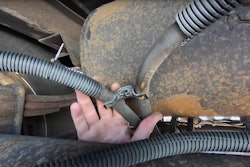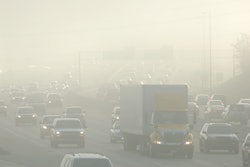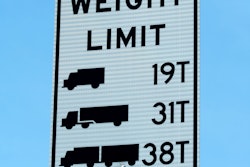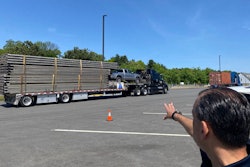The House Transportation & Infrastructure Committee Tuesday approved a package of bills to address supply chain challenges and improve overall safety in transportation.
Truck Parking Safety Improvement Act
The bill establishes a competitive grant program to fund truck parking projects across the country. Originally introduced to the House in 2021, the same bill was introduced during the prior legislative session and unanimously passed the House Committee on Transportation and Infrastructure before lawmakers adjourned in January.There is currently only one parking spot for every 11 truck drivers on the road today, and drivers spend an estimated 56 minutes every day looking for a safe place to park. Nearly half (45%) of respondents to CCJ's most recent What Drivers Want survey – a poll of more than 800 leased owner-operators and company drivers – said finding parking was their biggest problem as a driver that’s not related to their current employer/leasing fleet, ranking it ahead traffic delays (32%) and detention (15%).
A U.S. Department of Transportation report found 98% of drivers regularly experience problems finding safe parking and roughly 70% of drivers have been forced to violate federal hours-of-service rules because of this common scenario.
The bill was introduced by Reps. Mike Bost (R-Illinois), Angie Craig (D-Minnesota), Daniel Meuser (R-Pennsylvania), Troy Nehls (R-Texas), Eric Swalwell (D-California), Nancy Mace (R-South Carolina), Pete Stauber (R-Minnesota) and Brian Babin (R-Texas).
LICENSE Act
The bill, which was also introduced last year, would make permanent two DOT waivers that provide flexibility for licensing qualified new drivers and improve the application process for individuals seeking Commercial Driver’s Licenses by allowing skills test examiners to also administer the CDL knowledge test, and to administer a driving skills test to any applicant regardless of the applicant's state of domicile or training. The waivers were extended multiple times during the COVID-19 pandemic by both the Trump and Biden administrations with no findings that they adversely affect safety.The bill was introduced by Reps. Darin LaHood (R-Illinois), Henry Cuellar (D-Texas), Dusty Johnson (R-South Dakota), Troy Balderson (R-Ohio), Jim Costa (D-California) and Josh Harder (D-California).
CARS Act
The bill provides a 10% weight tolerance, specifically for stinger-steered automobile transporters hauling heavier hybrid and electric passenger cars to market. Without exceeding federal bridge weight limits, this bill would reduce the number of miles traveled by heavy-duty trucks that currently must complete multiple trips because they are unable to fully load their equipment due to current weight limits.It was introduced Rep. Lance Gooden (R-Texas).
Dry Bulk Weight Tolerance Act
This bill allows a 10% weight tolerance (in vehicles loaded at or below federal weight limits) for dry bulk carriers to account for the shifting of cargo during transit. The flexibility increases the efficient movement of dry bulk cargo, including agricultural goods, and would ensure that companies moving those goods are not penalized due to shifting weights due to braking and other standard events.The bill was co-sponsored by Reps. Rick Crawford (R-Arkansas) and Salud Carbajal (D-California).
H.R. 3447
The bill would provide a 2,000-pound weight exemption to hydrogen-powered vehicles, similar to the exemption currently applied to both battery-electric and natural gas-powered heavy-duty trucks. This legislation would reduce emissions while restoring technology- and fuel-neutrality in federal regulations for companies investing in new, cleaner heavy-duty vehicles.The bill was introduced by Rep. Greg Stanton (D-Arizona).











